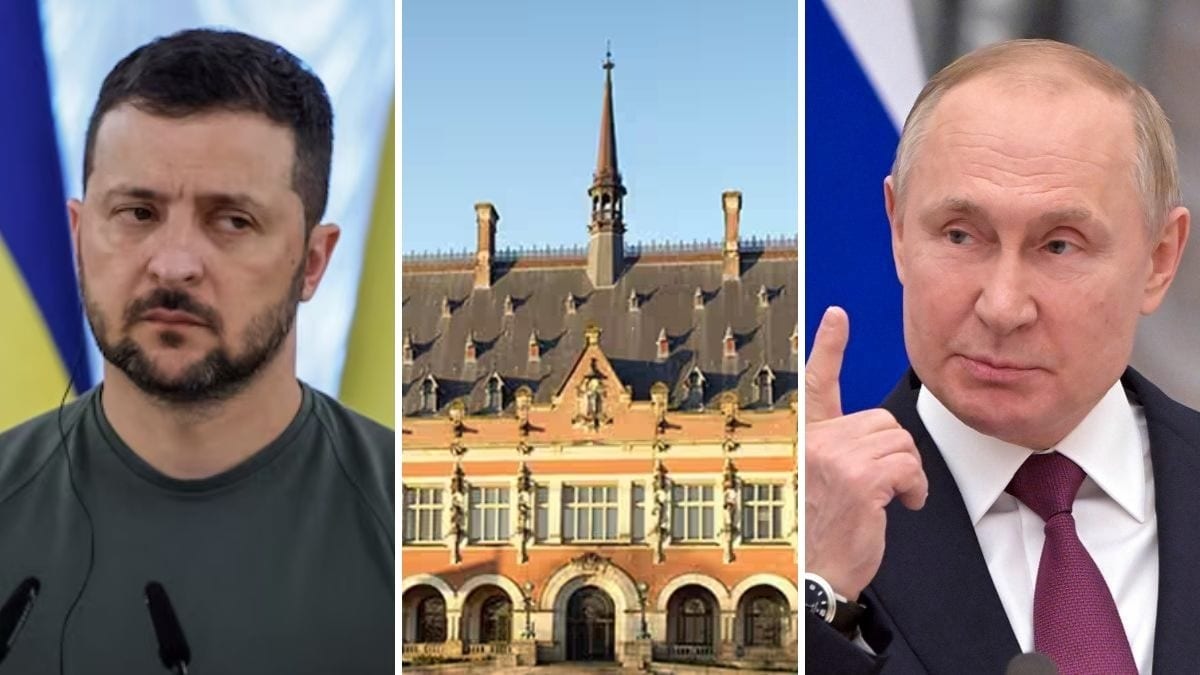
 Russia-Ukraine Genocide Case: UN International Court Delivers Crucial Verdict
Russia-Ukraine Genocide Case: UN International Court Delivers Crucial Verdict
In a landmark decision, the United Nations International Court of Justice (ICJ) recently pronounced its judgment on the genocide case brought by Ukraine against Russia. The case revolves around Ukraine’s allegations that Russia, in 2022, launched a baseless assault under the pretext of fabricated accusations of genocide, a violation of the 1948 Genocide Convention.
The Allegations and Counterarguments
Ukraine contended that Moscow falsely claimed Ukraine’s persecution of Russian-speaking populations, breaching the Genocide Convention. Moscow, however, refuted these claims, asserting that Ukraine’s actions posed a genuine threat to Russian-speaking communities.
Initiation of Legal Proceedings
Following the outbreak of full-scale war in February 2022, Ukraine promptly approached the International Court of Justice. Kiev accused Russia of employing deceptive tactics and making false claims to justify an invasion—an infringement of international law.
Contention Over Language and Ethnicity
Central to the dispute is Ukraine’s assertion that Russia violated international law by falsely accusing Ukraine of linguistic discrimination. Russia defended its position, stating that it had breached no conventions and was merely protecting Russian speakers from alleged persecution.
Misuse of Legal Procedures
During the 2023 hearings, Russia raised objections to what it deemed as procedural misconduct. Accusations of misusing legal processes added complexity to an already intricate case.
Conflict in Eastern Ukraine
Ukraine denied any imminent genocide threat in Eastern Ukraine, where it has been battling Russian-backed forces since 2014. The conflict’s regional context played a crucial role in the legal proceedings.
International Community’s Stance
Responses from other nations further intensified the diplomatic implications. The global community closely watched the case, anticipating broader consequences for international relations.
The ICJ’s Decision
In a momentous verdict, the ICJ found Russia in violation of the UN’s Anti-Terrorism Convention in 2024. However, the court dismissed some of Ukraine’s specific claims, including Russia’s responsibility for the MH17 plane shooting and events in Crimea.
Impact on Russia and Ukraine
The court’s decision carries significant ramifications for both nations. While Russia faces international legal consequences, Ukraine sees this as a validation of its claims against its neighbor.
MH17 Shooting and Crimea Crisis
The judgment also references past incidents, such as the MH17 shooting in 2014 and Russia’s annexation of Crimea. These events shaped the court’s decision and added historical context to the case.
Legal Consequences
The ICJ’s decision establishes legal precedents for future cases involving international law violations. It sends a powerful message about accountability in the global arena.
Public Reaction
Global public opinion and social media responses played a crucial role throughout the case. The verdict sparked discussions on the implications for justice and international relations.
Importance of the Decision
The ICJ’s ruling holds immense significance in holding nations accountable for their actions. It sets a precedent for future international legal proceedings and reinforces the importance of adhering to established conventions.
Ukraine’s Perspective
Kiev considers the decision a crucial legal victory. Ukrainian representatives emphasize the acknowledgment of Russia’s breach of international law, marking a turning point in their ongoing conflict.
The UN International Court’s decision in the Russia-Ukraine genocide case marks a pivotal moment in international law. While offering partial vindication to Ukraine, it imposes legal consequences on Russia. The case underscores the importance of international accountability and sets a precedent for addressing complex geopolitical disputes.
Read More: Bangladeshi Students Issue Fresh Ultimatum to Yunus Government Following Death of Sharif Osman Hadi

 Share
Share



